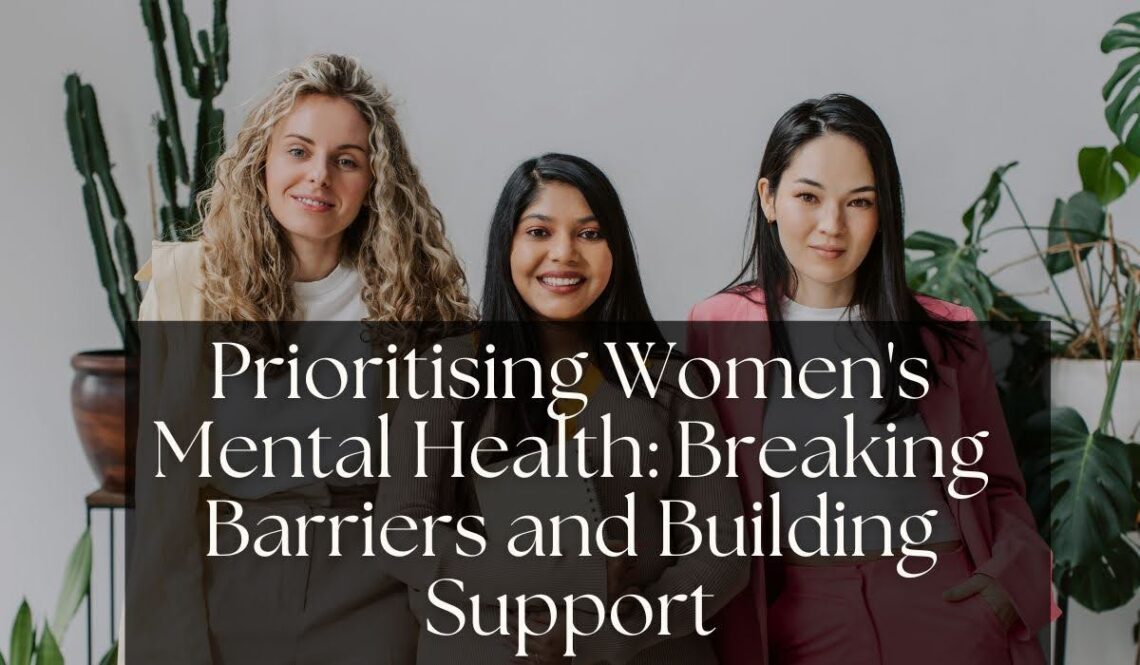
Prioritising Women’s Mental Health: Breaking Barriers and Building Support
Women face unique challenges when it comes to mental health, influenced by societal expectations, workplace pressures, caregiving responsibilities, and biological factors. In a world that demands constant balancing of roles, women’s mental health often takes a backseat, leaving them vulnerable to stress, burnout, and mental health conditions.
This blog aims to shine a light on the importance of prioritising women’s mental health and provides actionable steps for individuals, workplaces, and communities to foster better support systems.
The Challenges Women Face
- Workplace Inequalities:
Women often juggle professional responsibilities with household and caregiving roles, leading to immense pressure. Workplace gender bias, the gender pay gap, and lack of leadership opportunities can also contribute to feelings of inadequacy and stress. - Caregiving Burdens:
Women are more likely to take on caregiving roles, whether for children, elderly parents, or others. This “invisible labour” often goes unrecognised and adds to emotional and physical strain. - Societal Expectations:
The expectation for women to “do it all” – excel in their careers, maintain a household, and fulfil societal standards of appearance – can be overwhelming and detrimental to mental health. - Biological and Hormonal Factors:
Hormonal changes during menstruation, pregnancy, postpartum, and menopause significantly impact mental health. Conditions such as premenstrual dysphoric disorder (PMDD) or postpartum depression often remain underdiagnosed or untreated. - Stigma Around Mental Health:
Despite progress, stigma continues to prevent many women from seeking help for mental health issues. Fear of judgment or appearing “weak” can exacerbate their struggles.
Practical Steps to Support Women’s Mental Health
For Individuals:
- Set Boundaries: Learn to say no and prioritise tasks that align with your mental and physical well-being.
- Practice Self-Care: Regular exercise, mindfulness, and taking time for hobbies can help alleviate stress.
- Seek Help: Don’t hesitate to reach out to a therapist or support group. Remember, seeking help is a sign of strength, not weakness.
For Workplaces:
- Flexible Working Arrangements: Allow hybrid or flexible hours to accommodate caregiving responsibilities.
- Employee Assistance Programs (EAPs): Provide access to mental health resources and counselling services.
- Gender-Inclusive Policies: Promote equal opportunities, enforce anti-harassment policies, and support women in leadership roles.
- Mentorship Programs: Encourage mentorship and peer support to foster a sense of community among women in the workplace.
For Communities:
- Education and Awareness: Promote open discussions about women’s mental health to reduce stigma.
- Accessible Healthcare: Advocate for affordable and accessible mental health services tailored to women’s needs.
- Support Networks: Build community groups where women can share experiences and receive support.
Breaking the Stigma: Normalising Mental Health Conversations
One of the biggest barriers to addressing women’s mental health is the lingering stigma. Here’s how we can all help:
- Share Stories: Encourage women to share their mental health journeys to normalise seeking help.
- Educate Others: Raise awareness about how societal norms and systemic barriers impact women’s mental health.
- Foster Compassion: Create safe spaces where women feel heard, validated, and supported.
The Role of Men in Supporting Women’s Mental Health
Partners, colleagues, and friends can play a crucial role in supporting women’s mental health:
- Be an Ally: Listen without judgment and offer emotional support.
- Share Responsibilities: Share household and caregiving duties to ease the burden.
- Encourage Self-Care: Advocate for women in your life to take time for themselves and seek professional help when needed.
Looking Ahead: A Call to Action
Women’s mental health should be a priority for everyone—individuals, organisations, and communities alike. By recognising the unique challenges women face and taking proactive steps to support their mental well-being, we can foster a more equitable and compassionate world.
Let 2025 be the year we break barriers, build resilience, and prioritise women’s mental health like never before. Together, we can create environments where women thrive—not just survive.





